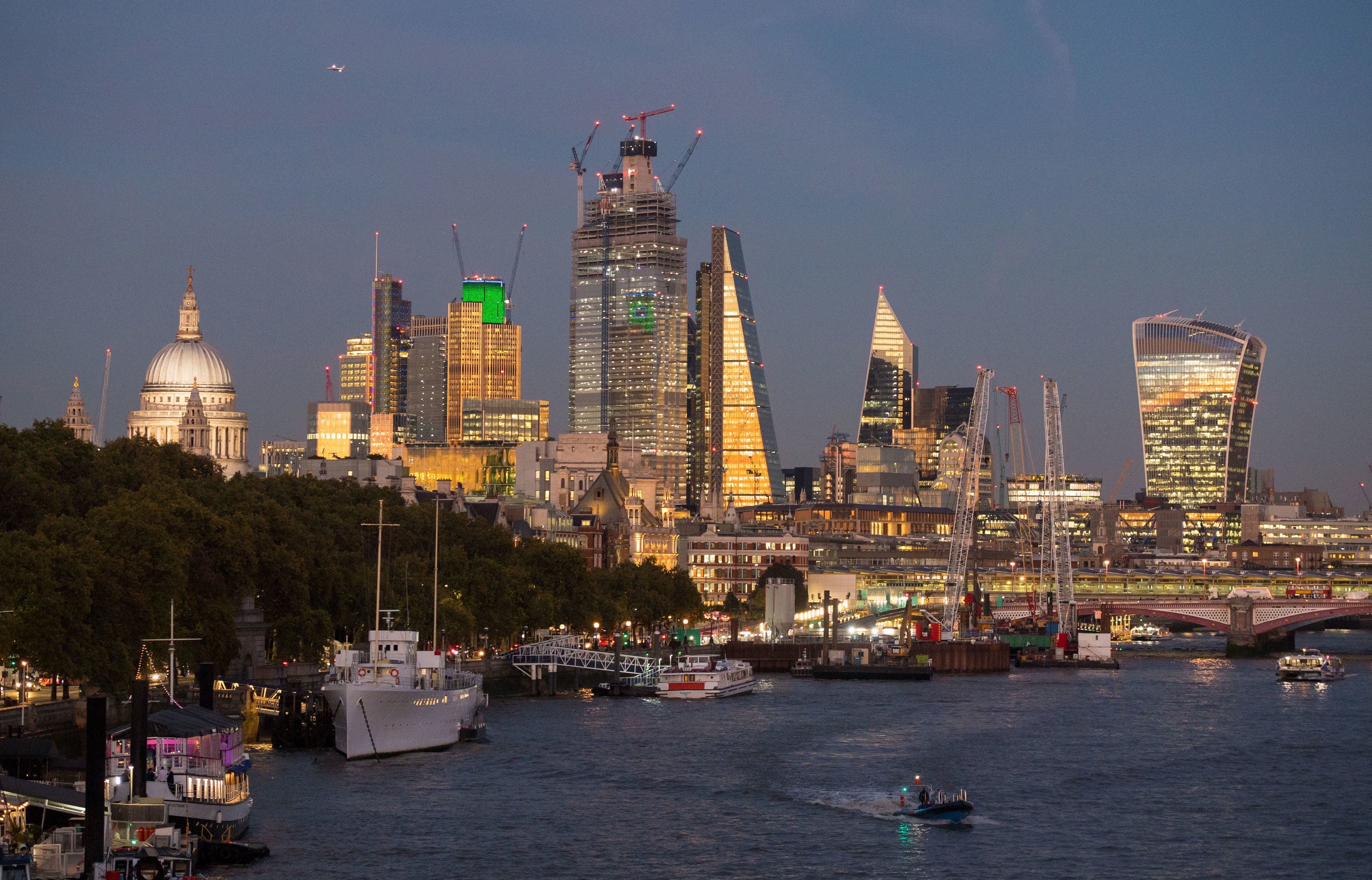London stocks rebound, but fall shy of last week’s close
The FTSE 100 ended the day up 104.44 points, or 1.4%, at 7,347.66.

Your support helps us to tell the story
From reproductive rights to climate change to Big Tech, The Independent is on the ground when the story is developing. Whether it's investigating the financials of Elon Musk's pro-Trump PAC or producing our latest documentary, 'The A Word', which shines a light on the American women fighting for reproductive rights, we know how important it is to parse out the facts from the messaging.
At such a critical moment in US history, we need reporters on the ground. Your donation allows us to keep sending journalists to speak to both sides of the story.
The Independent is trusted by Americans across the entire political spectrum. And unlike many other quality news outlets, we choose not to lock Americans out of our reporting and analysis with paywalls. We believe quality journalism should be available to everyone, paid for by those who can afford it.
Your support makes all the difference.A strong performance on Wednesday still left London’s top tier well short of where it started the week despite optimism driven by the City’s natural resource giants.
After gaining 104.44 points, or 1.4%, the FTSE 100 still only finished at 7,347.66, a good 40 points short of its close on Friday.
“Beleaguered stock markets have recovered to an extent this afternoon, following a slowing of US CPI (consumer prices index) growth, but concerns about further tightening remain,” said Chris Beauchamp, chief market analyst at online trading platform IG.
He said that the US Federal Reserve, led by Jerome Powell, will probably keep on hiking interest rates in a bid to dampen inflation.
“Jerome Powell has certainly been doing his best to fight inflation through higher rates, but comments from President Biden in the wake of inflation data shows that the administration expects the Fed to keep going in its quest to cool price growth,” he said.
“Some post-CPI dollar weakness is likely to give way to more upside for the greenback, at least until a global recession becomes a more distinct possibility.”
CMC Markets analyst Michael Hewson said that this was feeding through to London.
“The weaker US dollar is giving commodity prices a lift, helping to underpin the basic resources and energy sectors, pushing the likes of Glencore, Rio Tinto, Shell, and BP to the top of the FTSE 100,” he said.
But the top mover on the FTSE was Compass Group, which rose 7.4% after beating expectations in the first half, upgrading its outlook for the full year, and – to add a cherry on top – announcing a half-billion-pound share buyback.
The price of Brent crude oil jumped 4.7% to 107.28 dollars per barrel, while sterling fell 0.15% and 0.09% against the dollar and euro.
But at the end of the day, one pound could buy 1.2322 dollars or 1.1688 euros.
European markets were even more buoyant than the FTSE. The Dax in Frankfurt closed up 2.1%, while Paris’s Cac 40 gained 2.3%.
On Wall Street shortly after markets closed in Europe, the S&P 500 was up 0.7% and the Dow Jones up 0.9%.
In other company news, shares in Tui gained 5.7% as the holiday seller said it might return to profit this year as bookings for summer are strong.
The business said that customers have already booked 85% of the trips they bought in the summer of 2019, before the pandemic struck and left much of its business stranded.
The biggest risers on the FTSE 100 were Compass Group, up 116.5p to 1,694p, Prudential, up 59.2p to 942.2p, Pershing Square, up 115p to 2,585p, Glencore, up 20.5p to 476p, and Burberry, up 65.5p to 336.6p.
The biggest fallers on the FTSE 100 were Ocado, down 27p to 764.2p, Airtel Africa, down 5p to 135.6p, AstraZeneca, down 220p to 10,026p, Bunzl, down 63p to 2,905p, and Admiral Group, down 43p to 2,236p.